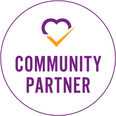Opioid Addiction Treatment
Guide for Patients, Families and Friends published by the American Society of Addiction Medicine
Addiction is a worldwide problem that affects many different people, their families, and communities. In 2014, about 435,000 Americans ages 12 or older reported currently using heroin, and 4.3 million reported nonmedical use of prescription opioids. Addiction is a chronic disease, like diabetes or heart disease, meaning there is no cure. But addiction can be managed, and people with addiction can, and do, recover.
Treatment using safe and helpful methods provided by trained clinicians can lead to a healthy, positive way of life. This healthy way of life is referred to as recovery. Treatment with a medication along with counseling and other support is often the most effective choice for opioid addiction and part of recovery.
This document provides facts about treatment from The American Society of Addiction Medicine (ASAM) - the leading medical society for addiction treatment. Learn more about ASAM at www.ASAM.org.
ASAM has published a Guide for Patients, Families and Friends of individuals that are addicted to opioids. The guide includes information about what your loved one might expect once he or she agrees to seek help. Included in the guide are topics on:
Treatment using safe and helpful methods provided by trained clinicians can lead to a healthy, positive way of life. This healthy way of life is referred to as recovery. Treatment with a medication along with counseling and other support is often the most effective choice for opioid addiction and part of recovery.
This document provides facts about treatment from The American Society of Addiction Medicine (ASAM) - the leading medical society for addiction treatment. Learn more about ASAM at www.ASAM.org.
ASAM has published a Guide for Patients, Families and Friends of individuals that are addicted to opioids. The guide includes information about what your loved one might expect once he or she agrees to seek help. Included in the guide are topics on:
- Assessment
- Treatment (including counseling, family participation)
- Withdrawal and medications to control withdrawal
- Medications to treat opioid addiction
- What to do in case of an overdose: the Dos and Don'ts of Responding to Overdose
- List of questions to ask your clinician
Email Us at [email protected]
Or leave a message at: 256-384-5055

Not One More Alabama is proud to be a Community Partner with The Partnership to End Addiction , an organization that provides personalized support and resources to families impacted by addiction, while mobilizing policymakers, researchers and health care professionals to more effectively address addiction systemically on a national scale.
Not One More Alabama is a not-for-profit 501(c)(3) organization. Donations may be tax-deductible.
Our federal tax ID number is 61-1807663

